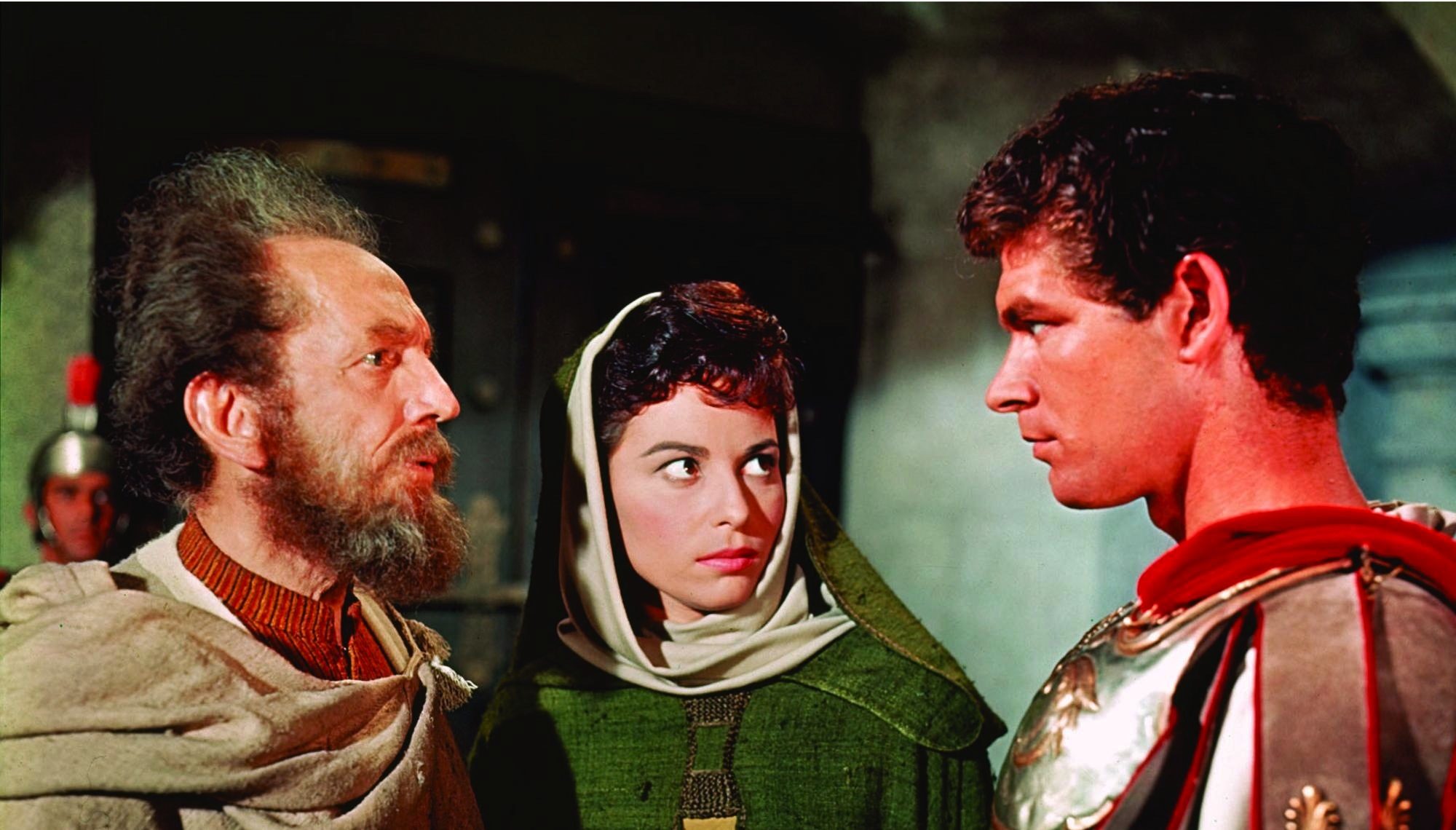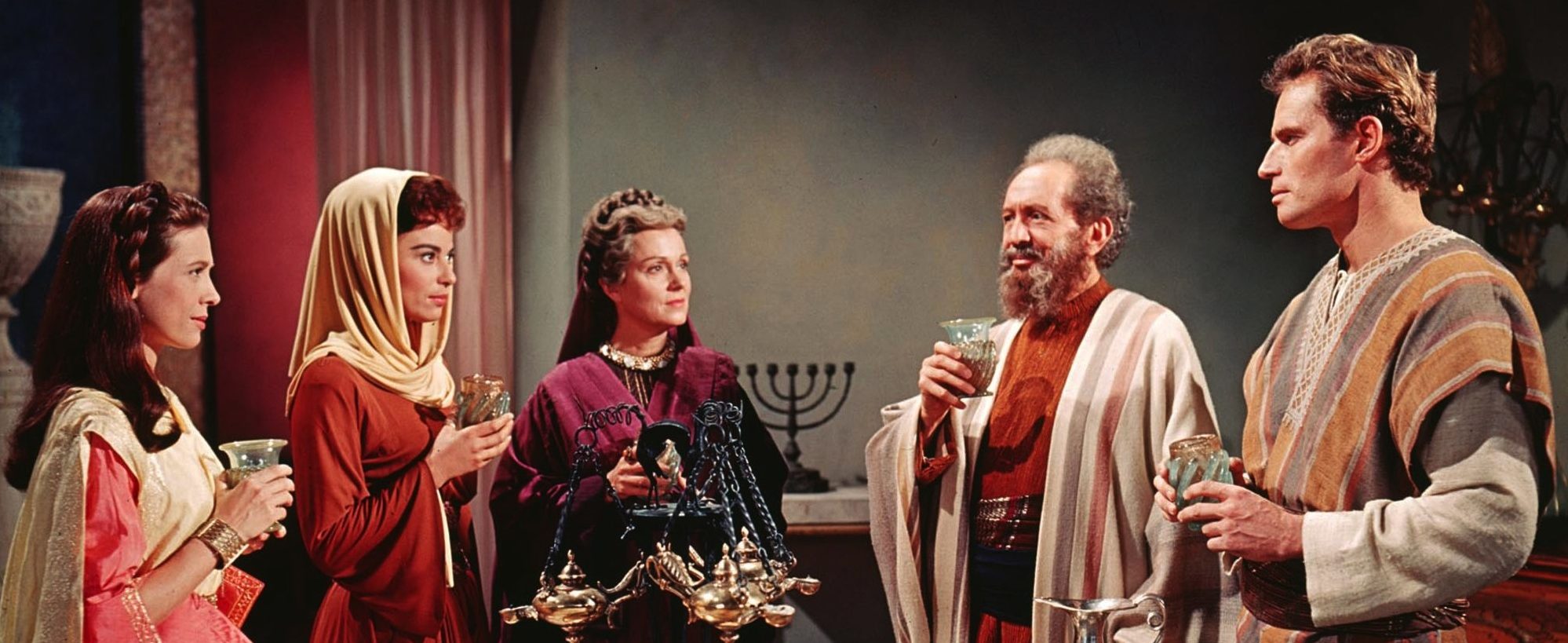Helmed by William Wyler, ‘Ben Hur’ is a adventure drama movie that chronicles the story of Judah Ben-Hur, a prince who falls prey to the betrayal of his Roman friend. Judah and his mother end up in prison despite being innocent. So, he vows to take revenge on the perpetrator for the false accusations and mistreatment. The 1959 movie is known for its beautiful and realistic display of Christian ethics, and many are curious to learn about the story’s origin. So, without any further ado, let’s delve into learning whether or not the narrative of ‘Ben-Hur’ is rooted in reality!
Ben-Hur is Based on Lew Wallace’s Christian Novel
No, ‘Ben-Hur’ is not based on a true story. It is an adaptation of Lew Wallace’s Christian novel titled ‘Ben-Hur: A Tale of the Christ’ and was developed for the screen by screenwriter Karl Tunberg. Considered to be one of the most influential religious books, it became a best-selling novel and spawned multiple film adaptations. Some prominent themes explored in the story are spiritual forgiveness, redemption, and compassion toward strangers.

Between 1877 to 1896, most Americans believed that piety would pave the way to prosperity, which is another motif in the novel. Wallace depicts this through Juda’s rise to the top, who always followed morals and remained kind, which led to all the richness in his life. As reports suggest, Wallace was skeptical of how his religion would perceive Jesus to be a hero in a fictional story, but he was adamant about staying true to everyone’s beliefs.
Most of Judah’s words were reportedly taken from King James Bible to avoid any misrepresentation. Moreover, the description of Jesus is quite synonymous with most 19th-century biblical fiction. Wallace was seemingly inspired by Robert G. Ingersoll, who was a renowned public speaker and agnostic. The author purportedly encountered him on a train journey to Indianapolis, where the two discussed religious ideologies. The author felt that Robert knew too little about his faith and became determined to research and write about Christianity.
In addition to that, romantic novels were another one of his muse that served as inspiration for the film. To research the material for his book, he frequently visited the Library of Congress and other major cities in the USA. Another realistic element of the movie is Roman history and customs. It truly shows the writer’s attention to detail and his willingness to shed light on what Christianity truly means.
Producer Zimbalist purportedly hired multiple screenwriters to perfect the script and minimize its content to fit into a movie. Around 12 drafts of the scripts were written, and Karl Tunberg also worked his magic on the script. He omitted a lot of the book’s content after Christ’s crucifixion, but Zimbalist wasn’t impressed with his effort. Due to the dialogue being a little modern, the producer asked S.N Behrman and Maxwell Anderson, two playwrights, to re-work the script.
The novel and the movie became cultural artifacts as they were created during a time of political unrest and social upheaval, which made it easier for the viewers to connect with themes of forgiveness and reformation. The main character, Judah Ben-Hur, is entirely fictional, and so are most other individuals in the story. In the past, Jewish rebels fought against the Roman Empire, but the events depicted in the film are entirely fictional.
In conclusion, ‘Ben-Hur’ is a beloved classic that swept the Oscars in 1960. Its stunning visuals, powerful message, and epic scenes are remembered fondly to this day. Whether viewed as a work of historical fiction or a timeless epic, the movie remains an integral part of our cinematic history and is a testament to what powerful storytelling can accomplish.
Read More: Best Christian Movies of All Time


You must be logged in to post a comment.